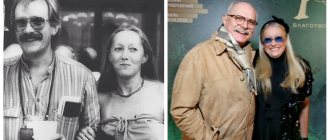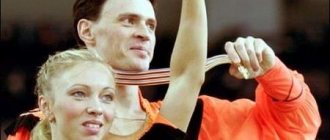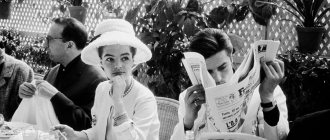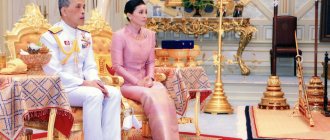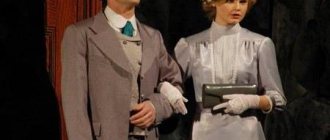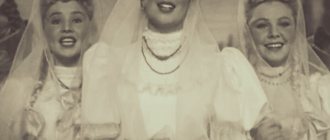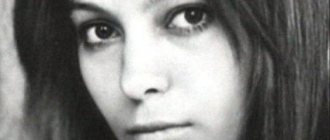Sports childhood
Katya Gordeeva was born in Moscow in 1971, on May 28. Her father was a dancer, and her mother worked at TASS, so the family was wealthy. Four years later, the couple had another daughter, Maria.
Parents sent Katerina to the CSKA Youth Sports School at the age of three. It was this step that determined her entire future fate. In 1981, young Ekaterina Gordeeva (photo shown below) met Sergei Grinkov at the skating rink. They each trained separately, but a year later they decided to pair them up, since both of their jumps were too weak to be single skaters. They were coached by Vladimir Zakharov. But a year later, a new coach, Nadezhda Shevalovskaya, and a choreographer began working with the young couple. After some training in 1983, this pair of young skaters took part in the World Championships and took sixth place.
Stunning victories began in 1984. This year, young skaters participated in the same international championship among juniors and received first place.
Early life
Gordeeva was born in Moscow, Russia, on May 28, 1971. Her father Alexander Alekseevich Gordeev, a folk dancer of the Moiseevsky Dance Ensemble, wanted Gordeeva to become a ballerina. Her mother, Elena Levovna, was a teletype operator for the Soviet newspaper agency TASS. Gordeeva's parents both worked hard and traveled a lot, so Gordeeva and her sister Maria often stayed with their grandparents. Gordeeva's grandmother read Grimm's fairy tales to Gordeeva, not knowing how Gordeeva would later describe her life - as a fairy tale.
Gordeeva in “My Sergei” also said that “I was the happiest girl on earth, not wanting in vain. At four, too young to try ballet as her father wanted, Gordeeva was invited by the coach of the Red Army Central Skating Club to Moscow for skating. By the time she was five years old, Gordeeva was practicing four times a week. In “My Sergei,” Gordeeva recalled: “I can’t miss this. This is my job". However, under pressure from her father, Gordeeva tried out for ballet school at age ten, but failed. She continued skating and a year later she was paired with Grinkov.
In December 1983, after a change of coach and only one year of training, Gordeeva and Grinkov took sixth place at the World Junior Championships. The next year they won. Gordeeva was 13 years old, and she began to see Grinkov as more than just her skating partner. In My Sergei Gordeeva recalls: I remember finding out that I found him attractive, and that it was nice to be with him.” However, they never spent much time off the ice. In 1985, Gordeeva and Grinkov had to go through another coaching change. However, this new Trainer was a tyrant.
Stanislav Zhuk, head coach of the Red Army Central Skating Club, put too much pressure on Gordeeva and Grinkov, overtraining them while he drank every day. Despite this, at their first senior level, Speed Skating, Gordeeva and Grinkov finished second. A few months later they won the European Championships. They then also won the World Championship. However, Gordeeva was not happy. In “My Sergei” she praised their performance: “We just proceeded from element to element without feeling, the intention was only not to make mistakes.” In 1986, after submitting a petition to the Central Skating Club of the Red Army with a request to remove Zhuk as their coach, Gordeeva and Grinkov again enjoyed skating with their new coach Stanislav Leonovich.
In 1987, Gordeeva and Grinkov continued their streak of victories, placing first against the Russians. However, they were disqualified from the European Championships because they refused to review their long program after an issue with their music. However, they quickly recovered, successfully defended their world title, and then began their first tour of America with skating promoter Tom Collins. Finally, much luckily for Gordeeva, Gordeeva and Grinkov spent time together off the ice.
In “My,” Sergei Gordeeva recalled a trip to Disneyland: “Sergei bought me some ice cream. A couple of times he hugged me after the ride or hugged me while we were standing in line. He had never done this before and it excited me. It was a wonderful day for me."
The first Olympics of Gordeeva and Grinkov in 1988 was full of nerves, homesickness and illness - Sergei had the flu. However, the nerves wore off and Grinkov recovered. They successfully skated their short and long programs and won a gold medal. However, Gordeeva, who was just 16, was left behind as 21-year-old Grinkov celebrated with his older friends.
Further success
After the unsuccessful trick, Katya did not give up and continued training and performing with a new coach. He led the couple to victory. In 1986, at the USSR and European championships, Sergei and Katya received silver medals. But at the beginning of spring of this year at the World Championships they earned first place. Ekaterina Gordeeva not only became a world champion, she was also the youngest among all those who won before her. Now she and Sergei became idols of Soviet viewers. Without keeping their fans waiting long, in the winter of 1987 the couple did the incredible, something that no one had done before. It was a “four-turn twist,” and the commentators couldn’t even believe their eyes. Interestingly, after the performance, Katya’s pulse was more than 200 beats per minute. So the couple became champions of the USSR.
An excerpt characterizing Gordeeva, Ekaterina Aleksandrovna
Meetings began between some nobles sitting at the table. The entire meeting was more than quiet. It even seemed sad when, after all the previous noise, old voices were heard one by one, saying one: “I agree,” the other, for variety: “I am of the same opinion,” etc. The secretary was ordered to write a decree of the Moscow nobility about the fact that Muscovites, like Smolensk residents, donate ten people per thousand and complete uniforms. The gentlemen who were sitting stood up, as if relieved, rattled their chairs and walked around the hall to stretch their legs, taking someone by the arm and talking. - Sovereign! Sovereign! - suddenly echoed through the halls, and the entire crowd rushed to the exit. Along a wide passage, between the wall of nobles, the sovereign walked into the hall. All faces expressed respectful and frightened curiosity. Pierre stood quite far away and could not fully hear the sovereign’s speeches. He understood only from what he heard that the sovereign was talking about the danger in which the state was, and about the hopes that he placed in the Moscow nobility. Another voice answered the sovereign, reporting about the decree of the nobility that had just taken place. - Gentlemen! - said the sovereign’s trembling voice; the crowd rustled and fell silent again, and Pierre clearly heard the sovereign’s so pleasantly human and touched voice, which said: “I have never doubted the zeal of the Russian nobility.” But on this day it exceeded my expectations. I thank you on behalf of the fatherland. Gentlemen, let us act - time is most valuable... The Emperor fell silent, the crowd began to crowd around him, and enthusiastic exclamations were heard from all sides. “Yes, the most precious thing is... the royal word,” said the sobbing voice of Ilya Andreich from behind, who heard nothing, but understood everything in his own way. From the hall of the nobility the sovereign went into the hall of the merchants. He stayed there for about ten minutes. Pierre, among others, saw the sovereign leaving the merchants' hall with tears of tenderness in his eyes. As they later learned, the sovereign had just begun his speech to the merchants when tears flowed from his eyes, and he finished it in a trembling voice. When Pierre saw the sovereign, he went out, accompanied by two merchants. One was familiar to Pierre, a fat tax farmer, the other was a head, with a thin, narrow beard, yellow face. They both cried. The thin man had tears in his eyes, but the fat farmer wept like a child and kept repeating: “Take both life and property, Your Majesty!” Pierre no longer felt anything at that moment except the desire to show that he didn’t care about anything and that he was ready to sacrifice everything. His speech with a constitutional direction appeared to him as a reproach; he was looking for an opportunity to make amends for this. Having learned that Count Mamonov was donating the regiment, Bezukhov immediately announced to Count Rostopchin that he was giving up a thousand people and their contents. Old man Rostov could not tell his wife what had happened without tears, and he immediately agreed to Petya’s request and went to record it himself. The next day the sovereign left. All the assembled nobles took off their uniforms, again settled in their houses and clubs and, grunting, gave orders to the managers about the militia, and were surprised at what they had done. Napoleon started the war with Russia because he could not help but come to Dresden, could not help but be overwhelmed by honors, could not help but put on a Polish uniform, could not succumb to the enterprising impression of a June morning, could not refrain from an outburst of anger in the presence of Kurakin and then Balashev. Alexander refused all negotiations because he personally felt insulted. Barclay de Tolly tried to manage the army in the best possible way in order to fulfill his duty and earn the glory of a great commander. Rostov galloped to attack the French because he could not resist the desire to gallop across a flat field. And so exactly, due to their personal properties, habits, conditions and goals, all those innumerable persons who took part in this war acted. They were afraid, they were conceited, they rejoiced, they were indignant, they reasoned, believing that they knew what they were doing and that they were doing it for themselves, and all were involuntary instruments of history and carried out work hidden from them, but understandable to us. This is the unchangeable fate of all practical figures, and the higher they stand in the human hierarchy, the more free they are. Now the figures of 1812 have long since left their places, their personal interests have disappeared without a trace, and only the historical results of that time are before us. But let’s assume that the people of Europe, under the leadership of Napoleon, had to go deep into Russia and die there, and all the self-contradictory, senseless, cruel activities of the people participating in this war become clear to us. Providence forced all these people, striving to achieve their personal goals, to contribute to the fulfillment of one huge result, about which not a single person (neither Napoleon, nor Alexander, nor even less any of the participants in the war) had the slightest aspiration. Now it is clear to us what was the cause of the death of the French army in 1812. No one will argue that the reason for the death of Napoleon’s French troops was, on the one hand, their entry at a late time without preparation for a winter campaign deep into Russia, and on the other hand, the nature that the war took on from the burning of Russian cities and the incitement of hatred towards the enemy in the Russian people. But then not only did no one foresee that (which now seems obvious) that only in this way could the army of eight hundred thousand, the best in the world and led by the best commander, die in a clash with the Russian army, which was twice as weak, inexperienced and led by inexperienced commanders; not only did no one foresee this, but all efforts on the part of the Russians were constantly aimed at preventing the fact that only one could save Russia, and on the part of the French, despite the experience and so-called military genius of Napoleon, all efforts were directed towards this to stretch out to Moscow at the end of summer, that is, to do the very thing that should have destroyed them. In historical works about 1812, French authors are very fond of talking about how Napoleon felt the danger of stretching his line, how he was looking for a battle, how his marshals advised him to stop in Smolensk, and give other similar arguments proving that it was already understood there was danger of the campaign; and Russian authors are even more fond of talking about how from the beginning of the campaign there was a plan for the Scythian war to lure Napoleon into the depths of Russia, and they attribute this plan to some Pfuel, some to some Frenchman, some to Tolya, some to Emperor Alexander himself, pointing to notes, projects and letters that actually contain hints of this course of action. But all these hints of foreknowledge of what happened, both on the part of the French and on the part of the Russians, are now exhibited only because the event justified them. If the event had not happened, then these hints would have been forgotten, just as thousands and millions of opposing hints and assumptions that were in use then, but turned out to be unfair and therefore forgotten, are now forgotten. There are always so many assumptions about the outcome of every event that takes place that, no matter how it ends, there will always be people who will say: “I said then that it would be like this,” completely forgetting that among the countless assumptions, completely opposite. Assumptions about Napoleon's awareness of the danger of stretching the line and on the part of the Russians - about luring the enemy into the depths of Russia - obviously belong to this category, and historians can only attribute such considerations to Napoleon and his marshals and such plans to Russian military leaders only with great reserve. All the facts completely contradict such assumptions. Not only throughout the war was there no desire on the part of the Russians to lure the French into the depths of Russia, but everything was done to stop them from their first entry into Russia, and not only was Napoleon not afraid of stretching his line, but he rejoiced at how triumph, every step forward, and very lazily, unlike in his previous campaigns, he looked for battle. At the very beginning of the campaign, our armies are cut up, and the only goal to which we strive is to unite them, although in order to retreat and lure the enemy into the interior of the country, there does not seem to be any advantage in uniting the armies. The emperor is with the army to inspire it to defend every step of the Russian land, and not to retreat. The huge Dries camp is being built according to Pfuel's plan and it is not intended to retreat further. The Emperor reproaches the commander-in-chief for every step of retreat. Not only the burning of Moscow, but the admission of the enemy to Smolensk cannot even be imagined by the emperor, and when the armies unite, the sovereign is indignant because Smolensk was taken and burned and was not given a general battle before the walls of it. The sovereign thinks so, but the Russian military leaders and all Russian people are even more indignant at the thought that ours are retreating into the interior of the country. Napoleon, having cut up the armies, moves inland and misses several occasions of battle. In August he is in Smolensk and thinks only about how he can move on, although, as we now see, this movement forward is obviously detrimental for him. The facts clearly show that neither Napoleon foresaw the danger in moving towards Moscow, nor Alexander and the Russian military leaders then thought about luring Napoleon, but thought about the opposite. The luring of Napoleon into the interior of the country did not happen according to anyone’s plan (no one believed in the possibility of this), but occurred from the most complex game of intrigues, goals, desires of people - participants in the war, who did not guess what should be, and what was the only salvation of Russia. Everything happens by accident. The armies are cut up at the start of the campaign. We are trying to unite them with the obvious goal of giving battle and holding off the enemy’s advance, but even in this desire to unite, avoiding battles with the strongest enemy and involuntarily retreating at an acute angle, we lead the French to Smolensk. But it’s not enough to say that we are retreating at an acute angle because the French are moving between both armies - this angle is becoming even sharper, and we are moving even further because Barclay de Tolly, an unpopular German, is hated by Bagration (who will become under his command ), and Bagration, commanding the 2nd Army, tries not to join Barclay for as long as possible, so as not to become under his command. Bagration does not join for a long time (although this is the main goal of all commanders) because it seems to him that he is putting his army in danger on this march and that it is most profitable for him to retreat to the left and south, harassing the enemy from the flank and rear and recruiting his army in Ukraine. But it seems that he came up with this because he did not want to obey the hated and junior German Barclay.
A year of testing
At the end of autumn 1987, Sergei and Katya were training as usual, but the unexpected happened. While lifting his partner using the “star” support, the skater caught his skate, and Katerina fell from a height of almost three meters onto the ice. She seriously hit her head and suffered a concussion. Sergei was very scared and, after his partner was able to train again, he completely changed. Now he began to hold his dear partner tighter and more securely, began to appreciate her, and the two skaters turned into a couple. The relationship of the young people changed, they now valued each other.
Personal life
It has been known for a long time that Katya and Sergei are connected not only by skates. But the couple came to the decision to enter into an official marriage only in 1991. On April 20, the newlyweds got married, and on April 28, they got married. On September 11 of the following year, their daughter Dasha was born. Close and dear families claim that it was an ideal relationship, pure and strong love.
Ekaterina Gordeeva and Sergey Grinkov
Unfortunately, family happiness did not last long. While in Lake Placid in November 1995, Sergei felt unwell. Doctors were called to the stadium and diagnosed acute heart failure. The young skater was quickly transported to the hospital, but there was no time to help. Grinkov died suddenly. Later, Catherine learned that the cause of her husband’s death was a massive heart attack.
Later in an interview, Ekaterina said that when your loved one dies in your arms, you realize how little all these victories, cups and medals mean.
Ekaterina Gordeeva with her husband and daughter
After her husband’s funeral, the figure skater did not have a question about figure skating. How to live further became the main question of her life. She felt the loss of her husband acutely. Only she knows how she had to convince herself that she needed to pull herself together and move on.
Ekaterina managed to pull herself together, and a few months later the figure skater was back on the ice - albeit alone. When she appeared on the ice arena, the audience stood up. And after the screening of the program, she burst into tears. And her three-year-old daughter Dasha came out onto the ice to calm her down.
Ekaterina Gordeeva
After the death of her husband, Gordeeva wrote a memoir book, “My Sergei.” The book immediately became a bestseller. Katya later admitted that she regretted revealing so many personal secrets. Although she does not hide the fact that at that time writing a book became an outlet for her. In 1998, Gordeeva starred in a documentary about Grinkov. They say that she still wears the wedding ring he gave her, her main talisman, on a gold chain.
In 1998-1999, Ekaterina Gordeeva participated in popular ice shows. Her partners were Anton Sikharulidze, John Zimmerman, Arthur Dmitriev. In 2000, in the StarsonIce show, the figure skater went on the ice with Ilya Kulik, and in 2001 it became known that the couple got married.
Ekaterina Gordeeva and Ilya Kulik
They didn’t organize a magnificent celebration; they just signed between tours at the Russian embassy in San Francisco. They tried not to advertise their relationship, since many fans of the Gordeeva-Grinkov couple were jealous of her new life. The new alliance seemed like a betrayal to some.
In the summer of 2002, their daughter Lisa was born in a private clinic in Los Angeles. Ilya is 6 years younger than Katya.
Ekaterina Gordeeva with her family
Rumors about the romance of the famous figure skater Gordeeva with actor Yegor Beroev appeared on the eve of the final release of the television show “Ice Age”. Journalists vied with each other to quote eyewitnesses claiming that the couple regularly met in one of the largest hotels in the capital. And the paparazzi even provided several photos of Katya and Yegor in the cozy atmosphere of a romantic dinner.
However, both of them categorically denied a love affair. Ekaterina was already married to Kulik at that time, and Beroev’s wife, Ksenia Alferova, even starred with them in the same show (her partner was Povilas Vanagas).
Ekaterina Gordeeva and Egor Beroev
By the end, serious passions flared up around the scandalous couple - some publications managed to notify readers that Ksenia divorced her husband because of his infidelity. But the divorce never took place.
The legendary figure skater today is a loving wife and caring mother. And Ksenia and Egor are raising their daughter Evdokia together.
Ekaterina Gordeeva: personal life and bitter losses
Sergei and Katya loved each other, so in 1991 the skaters decided to get married. They got married, promising to love each other forever. This was the happiest and most successful couple. They always acted together. Ekaterina was radiant, because everything worked out for her both in her career and in her personal life. In 1992, the young couple had a daughter, Daria. The family moved to America. Life was going as well as possible. In addition, in 1994, the skaters received another Olympic victory. But this happiness could not last long.
At the end of November 1995, the young family went to another training session, which took place in Lake Placid. Sergei suddenly became ill. He was hospitalized and died in the hospital. He suffered a massive heart attack. Together with Katya, the whole world mourned the loss. She left behind a three-year-old daughter, Dasha, who was very similar to her father.
A year later, Ekaterina Gordeeva published the book “My Sergei...”, in which she described all the bright memories and her subsequent grief.
Love has come
“When I was 16 years old, Sergei gave me a large soft toy, a shaggy dog, for my birthday. And, it seems, also perfume. And then I also gave him something for the New Year. I remember that I was very nervous, worried about what to give him. For many years I looked at him as a cool adult guy, I myself was very, very small. Probably, feelings began to arise after the 1988 Olympics in Calgary, when I was 17. And the romance flared up in 1989. Then there was the World Championships in Paris. Spring, Paris - it was all very romantic,” Gordeeva recalled in one of her interviews.
On April 20, 1991, Mendelssohn’s “Wedding March” was performed for the lovers once again. Only now the marriage was real. By this time, the skaters not only managed to become four-time world champions, but also ended their careers in big-time sports. They began performing at the Tatiana Tarasova Theater, where they paid good money for participating in the ice show. And the young couple really needed finances, because a year after the wedding, Catherine gave birth to a daughter, who was named Dasha.
And then what...
Katya returned to the ice in 1996. It was skating that helped the young star overcome this grief. She took part in competitions until 2000. After this, the figure skater ended her sports career and began to take part in shows with different partners.
On the Stars On Ice show, Ekaterina met figure skater Ilya Kulik, who became her new partner. In 2001 they got married. The family remained to live in America, and in 2002 the couple had a daughter, Elizabeth.
It is worth noting that a documentary film was made about the famous figure skater Ekaterina Gordeeva in 1998. Katya also published a second book entitled “Letter to Daria.”
"We were young and in love, and then he died." Drama on Ice
On November 20, 1995, everything was as usual at the skating rink in Lake Placid, America. Participants of the American show Stars On Ice were preparing for the next performance. Working on the ice were Olympic champion Scott Hamilton, Olympic champion Kristi Yamaguchi, and Albertville-92 silver medalist Paul Wiley. Choreographer Marina Zueva watched everything at the side. Her students, two-time Olympic champions Ekaterina Gordeeva and Sergei Grinkov, joined the star cast a few days ago and almost immediately began staging a new program. But the last joint number between Katya and Sergei will remain Mozart’s “Requiem”.
“In the summer of that year, Sergei first complained of severe back pain,” recalls Gordeeva. “He couldn’t even train for a while.” I was examined first in Russia, then in the USA. Doctors said that there were problems with the spine and joints. For figure skaters it’s a common story. This is probably why, when the pain subsided a little, we calmly returned to training.
That day we were on the ice, practicing throws, and suddenly Seryozha leaned forward and said: “I feel very bad.” And then he slowly lay down on the ice. I thought it was my back again. Marina drove up to us and immediately rushed to the far side, where there was a telephone, to call 911. She probably immediately realized that it was a heart.
They didn’t let me look at him lying on the ice, they just held him. At the hospital we were told to wait, and I don’t remember how much time passed: 30 minutes, an hour, several hours. And then the doctor came out and said that they couldn’t save Sergei, and allowed me to sit alone with him in the room for a while.”
Sergei Grinkov died of a massive heart attack. As it turned out later, this was already the second heart attack in a day. He suffered the first one at night, in his sleep. Grinkov was 28 years old.
***
Gordeeva and Grinkov might never meet. Sergei dreamed of a career as a singles skater and resisted until the last moment when, due to his too tall height and not very outstanding jumps, he was offered to switch to pair skating. He complained to his friends: “They give me a partner.” And he was very surprised when 11-year-old Katya Gordeeva was introduced to him during training. He was four years older. A noticeable difference for this age.
“Sergey talked all the time with the girls from the dance couples. But in ordinary life he didn’t pay any attention to me. I was too small for him. I remember we were flying home after the next competition, I was sitting with my peers, we were eating ice cream and couldn’t believe that this was possible - how did the staff manage to save it, because the flight took many hours. Seryozha, of course, already had other interests.”
RIA News
On the ice everything was completely different. Grinkov was immediately captivated by his partner’s absolute fearlessness.
When talking about the technical revolution in pair skating, Chinese champions Sui and Han are most often mentioned. They first performed the quadruple throw and twist in 2011. You can now count the number of athletes who dare to perform such elements on the fingers of one hand. Gordeeva and Grinkov did quadruple twists back in the first half of the 80s. And they started learning the element when Katya was not even 14.
Another feature of the pair is the most difficult lifts. One day it almost turned into a tragedy. During training, Sergei could not hold Katya, she fell onto the ice from a height of three meters, hit her head and spent almost a month in the hospital due to a severe concussion. When Katya was discharged, there were a little more than three months left before the Olympic Games in Calgary, where medals were expected from Gordeeva and Grinkov. In Canada they were already a couple not only on the ice.
“When I was allowed to start training, I immediately noticed that Sergei was holding me tighter, more securely, as if he didn’t want me to touch the ice at all. It’s like he’s grown up during the time we haven’t been skating. And I felt more confident. During these two weeks, something happened, and even I, who was only interested in skating and training, suddenly realized that Sergei began to treat me differently. We used to be two skaters. Now they have turned into a real couple.”
Despite the short deadlines, Gordeeva and Grinkov brought their Olympic programs to perfection. The free program to the music of Mendelssohn, Chopin and Mozart is still considered one of the best programs in the history of pair skating. In it, they performed the most complex lift with bilateral rotation for the first time. And they received 14 ratings of 5.9 from the judges.
***
In the 13 years that Katya and Sergei spent together, they won two Olympics, four world championships and three European championships. The co-author of most victories was Marina Zueva. “In the first programs they were like brother and sister, just a little childish fun,” says Zueva. “When I realized that something more serious was emerging between them, I played “Romeo and Juliet” for them. They were sincere in their programs because there were real feelings between them. There is an expression: made for each other. It’s banal, but there’s nothing better to say about them.”
RIA News
Zueva brought Gordeeva back to life after the tragedy.
“I spent only one night in Sergei’s and my Moscow apartment after the funeral. I couldn't stay there any longer. Marina Zueva literally scheduled my time minute by minute in order to somehow distract me. I went to museums, exhibitions and concerts, having trouble understanding what was happening around me. There was a feeling of wild emptiness that was slowly killing. Every morning I caught myself thinking that I would like to fall asleep and never wake up again.
We were young and in love. And suddenly he died. All that remains is the memory that lives in my soul and in our daughter Daria. As they usually said about Sergei and me, when we were skating, our hearts beat as one. This was indeed the case. When his heart stopped, mine was broken forever.
I couldn’t even think about going out on the ice again. I was afraid to perform alone, and considered pairing up with someone to be a real betrayal towards Sergei.”
A year after Gordeev’s death, Katya still went out on the ice to organize a “Celebration of Life” memorial evening. The program with which Gordeeva returned to talk about the love and pain of her whole life was Mahler’s Adagietto. She was able to repeat the number herself only once more. And the music was inherited by Zueva’s other students, Canadians Tessa Virtue and Scott Moir.
“Tessa and Scott’s program is a continuation, a happy continuation of Katya’s tragedy,” Zueva said in an interview with Channel One. — When I needed to stage a number dedicated to Seryozha, I immediately remembered Mahler. There is so much drama in this music... But I made the program itself in such a way that in the finale Katya still finds her way to happiness. I wanted to tell everyone and, above all, Katya herself that life goes on. Yes, a terrible tragedy happened, but it will raise it.
As Tessa and Scott grew up, I saw that they could rethink and complete Katya's story.
In general, Mahler wrote “Adagietto” for his bride and put the score on her piano. She read it and realized that it was an invitation to get married. Here's the story. A story of true love. Not earthly, but heavenly."
***
In life, Ekaterina Gordeeva was not allowed to get out into the world for a very long time. The producers of American ice shows understood well: tragedy sells better. When Ilya Kulik appeared next to Katya and they decided to get married, there were even threats - the organizers promised to terminate the contracts.
“I then often remembered the first days after Seryozha’s funeral. And my thoughts that I would betray him if I let someone into my life. These thoughts were so unbearable that I instinctively went to church to Father Nikolai, who baptized me, married us with Sergei, baptized Dasha when she was born, then performed Sergei’s funeral service... He listened to me and very simply said: “Don’t be afraid to be happy in your life.” future life."
RIA News
Katya was not afraid. She gave birth to another daughter, Elizabeth. And he still performs in ice shows, including in Russia. He also tries to train. But that's a completely different story.
The material uses quotes from Ekaterina Gordeeva’s book “My Sergei”
Subscribe to the Sport24 channel in Yandex.Zen
Fallen star
After giving birth, Katya quickly started training. The couple successfully performed in the American show Stars on Ice. In 1993, professionals were allowed to participate in amateur competitions again, and, to the great joy of all figure skating fans, the Gordeeva-Grinkov pair not only returned, but also won their second Olympics in 1994. This was followed by new prestigious contracts. They now have a permanent home in the USA, where Sergei happily furnished the nursery with his own hands. And no one knew that there was nothing left before the tragedy.
On November 20, 1995, during training in Lake Placid, Sergei suddenly collapsed on the ice. His last words were: “I feel very bad.” An hour and a half later, a handsome 28-year-old man, a happy husband and father, a man whom the whole world loved, died of a heart attack. Katya was taking off his skates, already dead... The autopsy showed that Grinkov suffered from advanced heart disease, and just the day before he suffered his first heart attack.
